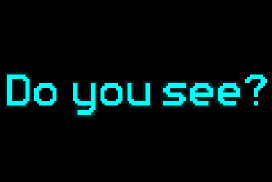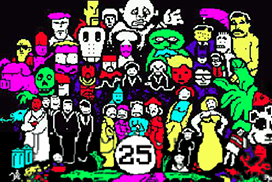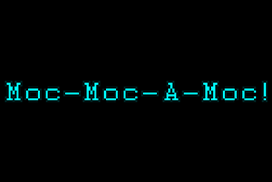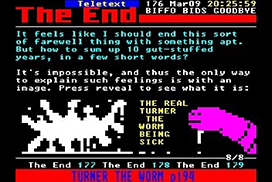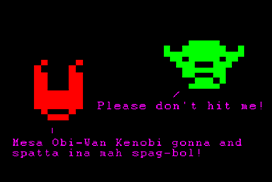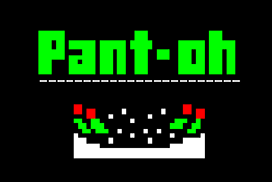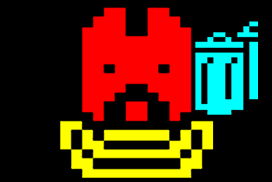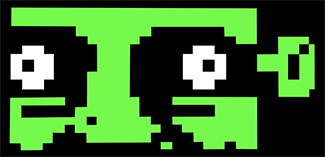
Page 28, press hold, and reveal. Digitiser's founder speaks out
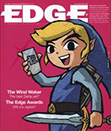
|
Okay class, turn on your PS2s and turn to level five
Edge #123, May 2003
A curious thing happened to me recently while playing through Medal of Honor Frontline for the second time. I've always enjoyed a good war, see. Indeed, there was a time in my life when I'd have gladly poured wine down the back of peace protestors' collars, mocked Greenham Common lesbians with derisive robotic dancing, or lobbed eggs at passing Greenpeace ships. What gives them the right to try and deprive us, the licence fee payer, of a good TV war?
I don't know whether it was due to the looming real-life conflict in Iraq, or a sudden leap-frogging of some adolescent hangover, or reading that EA was set to capitalise on yet another theatre of war - the campaign in the Pacific - for its next Medal of Honor game. But whatever it was, that invisible, metaphorical barrier that has always separated me from the realities of conflict suddenly fell away. It was somewhere halfway through the climactic Arnhem level that this profound thing happened. Suddenly, what I'd previously regarded as one of my favourite shooters of the past year ceased to be as fun, and actually struck me as a little sick and exploitative.
Apparently, the game's designers toyed with including blood in the game, but ultimately ruled against it. Why? Presumably, to lower the age rating, maximising potential sales. Given the lengths EA went to in order to create a realistic setting, and stress the heroism of real WWII soldiers, dismissing the horrors of war seemed to me an injustice.
Imagine if the opening scenes of 'Saving Private Ryan' had done away with the gore to ensure a 12 rating. Aside from the glib comedy of bloodless limbs flying left and right, and the need for broad pratfalls to play up injury (ideally accompanied by hilarious sound effects generated by a Swanee whistle and kazoo), there would have been a public outcry. The radical rent-a-causes would've been hammering on the doors of Spielberg's mansion, demanding to yank that beard right off his stupid face.
Yet because 'Ryan' was as honest in its portrayal of D-Day as it actually was - refusing to tone down the starkness of blown-off faces and fear-induced vomiting - it was rightly heralded a masterpiece. The Medal of Honor franchise is one of those rare occasions when a game would be improved, out of duty and respect if nothing else, to be as bloody and realistic as possible.
Yet, the game proved enough of a tease that it drove me to learn more. In the days following my politically-correct conversion I ended up buying the 'Band of Brothers' DVD box-set, spent over £30 on books about D-Day, and bothered passing pensioners to relate their own tales of how they bayoneted German teens for spilling their pint (of blood). My interest opened my eyes to hitherto unsuspected levels of heroism, and gob-smacking, individual tales of adventure and bravery.
Bravery such as the exploits of Sergeant Harrison Summers, a US paratrooper, whose actions in the early hours June 6, 1944, read like a design document for the next Serious Sam game. Firing from his hip as he went, Summers single-handedly stormed farmhouse after farmhouse, killing dozens of German troops. It was the sort of thing you might find in a Medal of Honor game, only with more blood. And fewer health pick-ups.
As I continued to investigate, the less I appreciated Medal of Honor. It was what it didn't show, more than what it did, that fuelled my curiosity. Too much of those games is lifted from 'Saving Private Ryan' and - in the case of Spearhead - 'Band of Brothers'. They would have benefited greatly if the designers had put those productions to one side, and extended their research beyond the aisles of Blockbuster. Instead of aping Mr Spielberg's work, they had the potential to expand beyond the confines of the TV and cinema screens.
But before this becomes a belated review, I'd like to stress - faults or not - that Medal of Honor highlights for me the fact that games have the potential to become worthwhile and legitimate historical archives. Sort of. While at present game designers may not be bold enough to tackle reality without filtering through a Hollywood gauze, the time can't be far away when reviews herald a game for its "bold recreation of the horrors of war," rather than bemoaning that it has "too many save points."
Imagine a genuinely interactive equivalent of 'Saving Private Ryan'. Imagine fighting your way through a ruined French hamlet - not shoe-horned along a pre-determined route by a designer's whim, and prescriptive AI - but having to tackle an evolving situation head-on, in the same way real soldiers had to back in 1944. Imagine the confusion and terror of your comrades dropping around you, their heads popping away into crimson mist. Imagine being pinned down, too terrified to reload your rifle for fear of alerting the enemy to your presence. We have the technology - all it takes is courage, and some focus.
The MoH games came close to evoking such situations with their 'Ryan'-influenced Omaha beach stages, but reverted to firstperson shoot 'em up cliché for much of the remainder. Given that Spielberg hasn't yet produced a project set in the Pacific Rim, there's hope that MoH: Rising Sun may offer some more originality. And yet, it's likely to only be as bloody as an episode of the 'Tweenies'.
While there's something distasteful about allowing a 12-year old to watch a PG-rated Bond film - whose only lesson is that women are there to be shagged then fed to sharks, and that smashing each other in the mouth with bottles is acceptable - if they were curious about the war, I'd gladly let one watch the 15-rated 'Saving Private Ryan'. You want to know what war was like? Well here you go, sonny. And don't tell your parent or guardian.
Perversely, I'd be much less open about letting them play the 15-rated MoH games. Although positioned as interactive spin-offs of Spielberg's war films, they're closer in many respects to Bond. There are no moral lessons in MoH games, just the implication that violence lacks consequences.
Assuming that the games industry wants to be perceived as more than a feeding trough for humanity's lowest common denominator, it's going to have to try a little bit harder. Sticking some pretentious quote about the horrors of war at the front of a game that effectively celebrates those same horrors simply isn't enough.
Right. Moral sermon over. I'm off to draw willies on the door of the local vicarage, and post some dog dirt to Amnesty International. Who's with me?
Mr Biffo is a semi-retired videogame journalist. His views do not necessarily coincide with Edge's
Do you know of any important moments from the annals of Digi history that have been omitted? If so, then mail me (superpage58@gmail.com) right now, man. Credit will be duly given for anything that gets put up.




